Description
ABSTRACT
Online Defamation: Rethinking the Liability of Internet Intermediaries for Third-Party Defamatory Contents in Nigeria
Sadiku M. Ilegieuno*, Nosakhare Iyamu**, and Lawal Kazeem***
At common law, anyone involved in the publication of a defamatory statement, no matter how slight, including a newspaper vendor who may be unaware but merely sells newspapers allegedly containing offensive materials, may be liable for defamation. However, this strict application of the common law position does not appear fashionable in the 21st century because of the emergence of social media and/or digital platforms, such as Twitter, Facebook, Instagram, Amazon, Blogger, Search Engines and other modes of online expressions have created a new frontier in the law of defamation. With these digital platforms, third party internet users across the globe can express their opinions on anything by way of posting contents, such as texts, videos, or photos, on the platforms; and such contents, which are viewed across the world in matters of minutes, may infringe or defame the rights or reputation of others. People frequently ask this: who should bear responsibility for the infringing or defamatory content? Should it be the third-party author or creator of the content or the owners or operators of the digital platforms where the infringing or defamatory content is published? To put it simply, are internet intermediaries liable for the defamatory content generated on their platforms by third party users? Or should the strict common law position also apply to operators of internet digital platforms who only make such digital platforms available for netizens to express themselves? This article aims to seek answers to these questions within the context of Nigerian law, drawing inspiration from what is trending globally.
Keywords: Defamation, Internet, Digital platforms.
INTRODUCTION
As the world continues to evolve, so do human interactions and the way civil wrongs/torts are committed. In modern times, the tort of defamation is often committed in cyberspace rather than in the physical space. The digital age has brought entirely new scenarios that have expanded the concept of defamation far beyond what the law could have ever conceived a few decades ago. In times past, the ramifications and liabilities for defamation were straightforward. At common law, anyone involved in the publication of a defamatory statement, no matter how slight, including a newspaper vendor who may be unaware but merely sells newspapers allegedly containing…
* LL.B (University of Benin), LL.M (University of Lagos). Partner, Disputes Resolution and METIS Practice Groups at Templars, a tier-one full service commercial law firm in Lagos, Nigeria.
** LL.B (Igbinedion University) LL.M (University of Buckingham), Associate, Disputes Resolution Practice Group at Templars.
*** BCL (University of Oxford). Associate, Disputes Resolution and Tax Practice Groups at Templars.

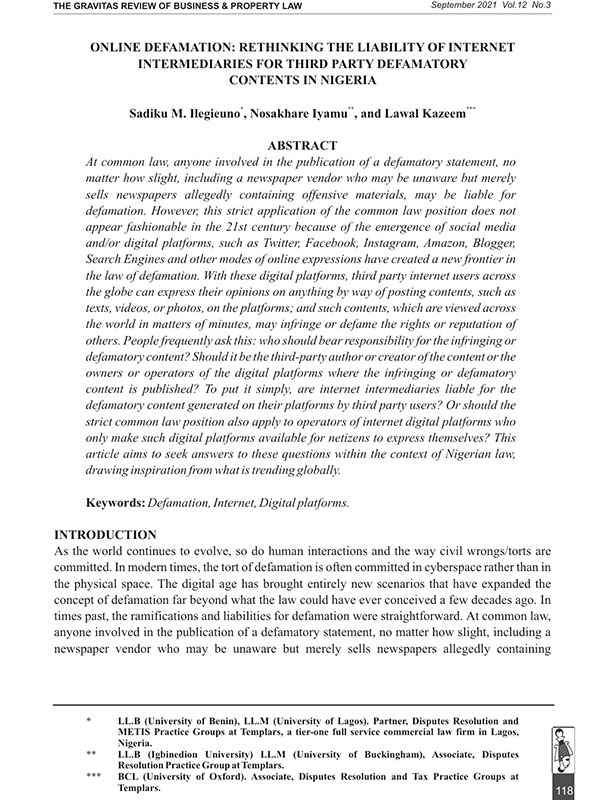
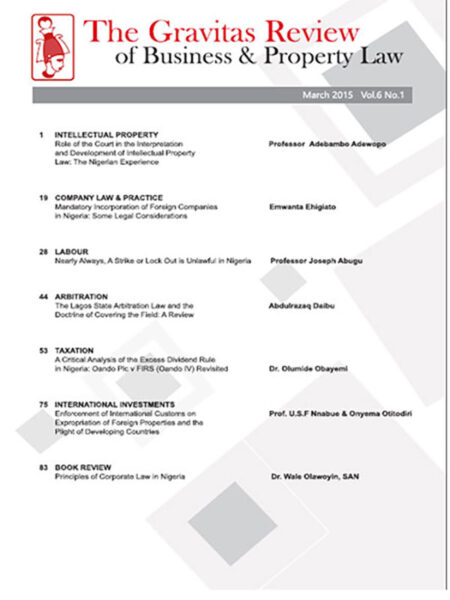
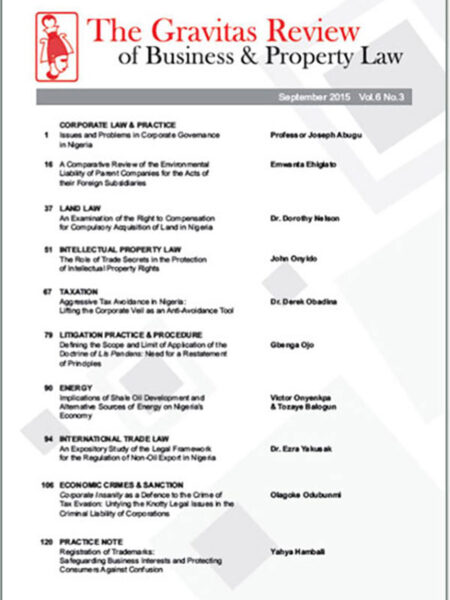
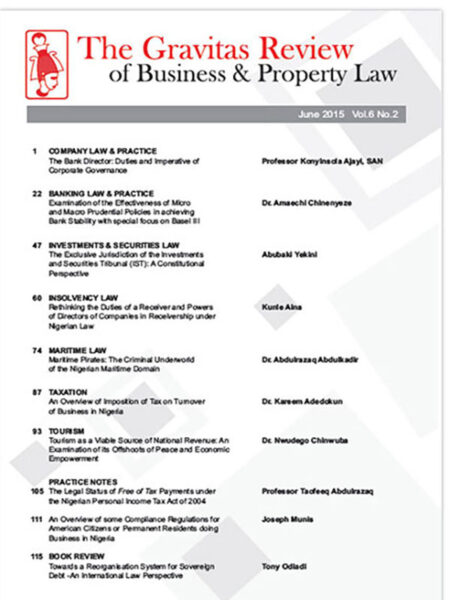
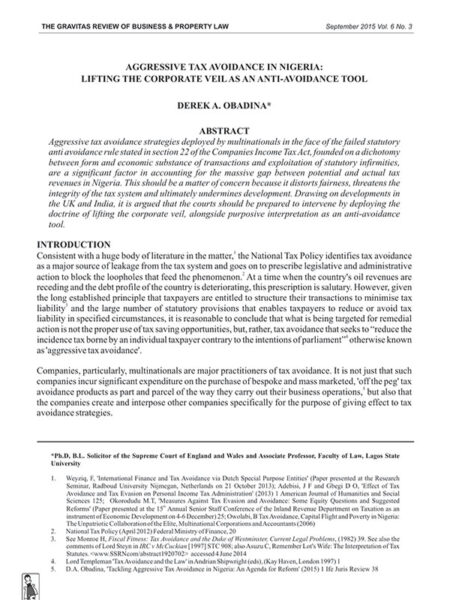


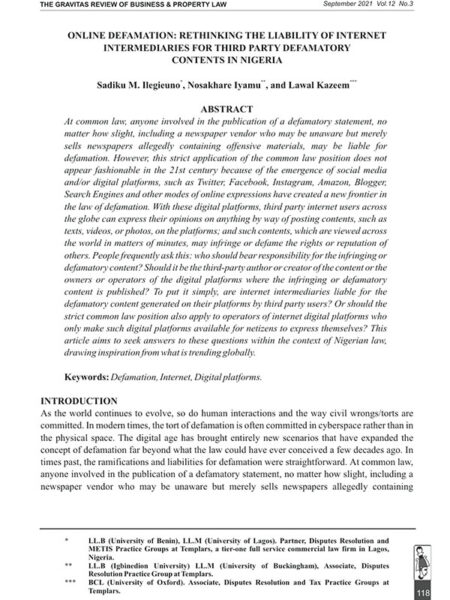
Reviews
There are no reviews yet.